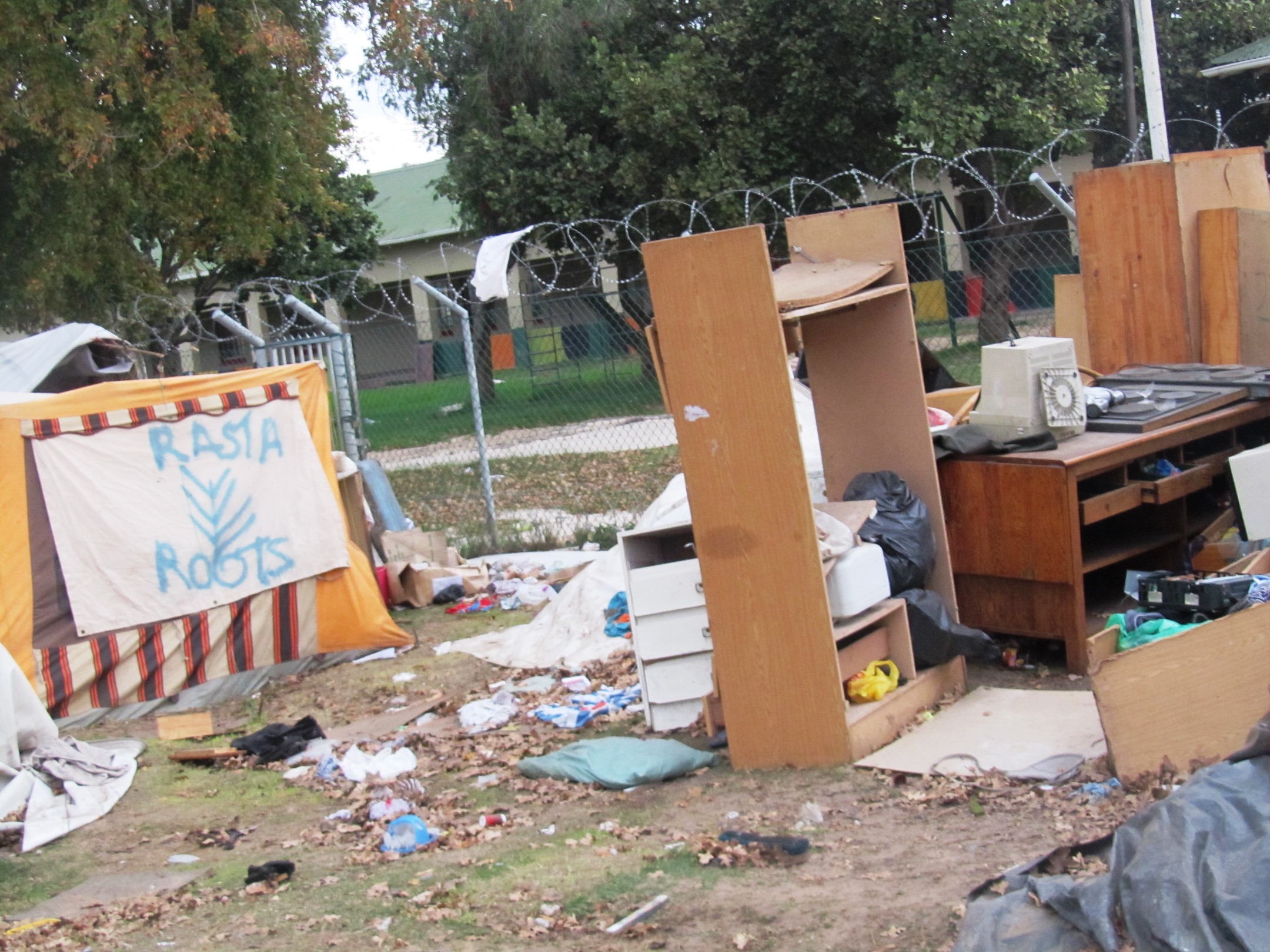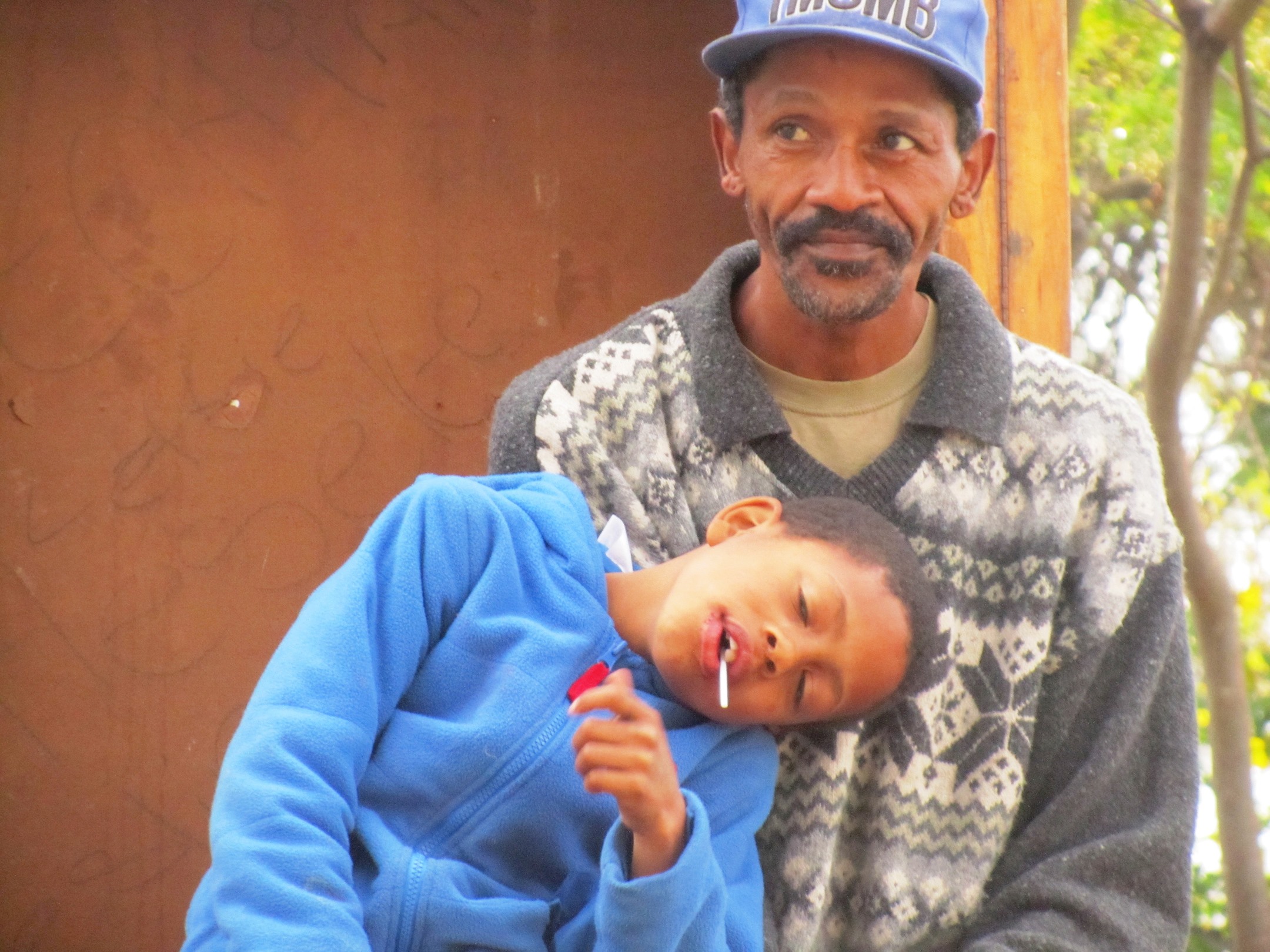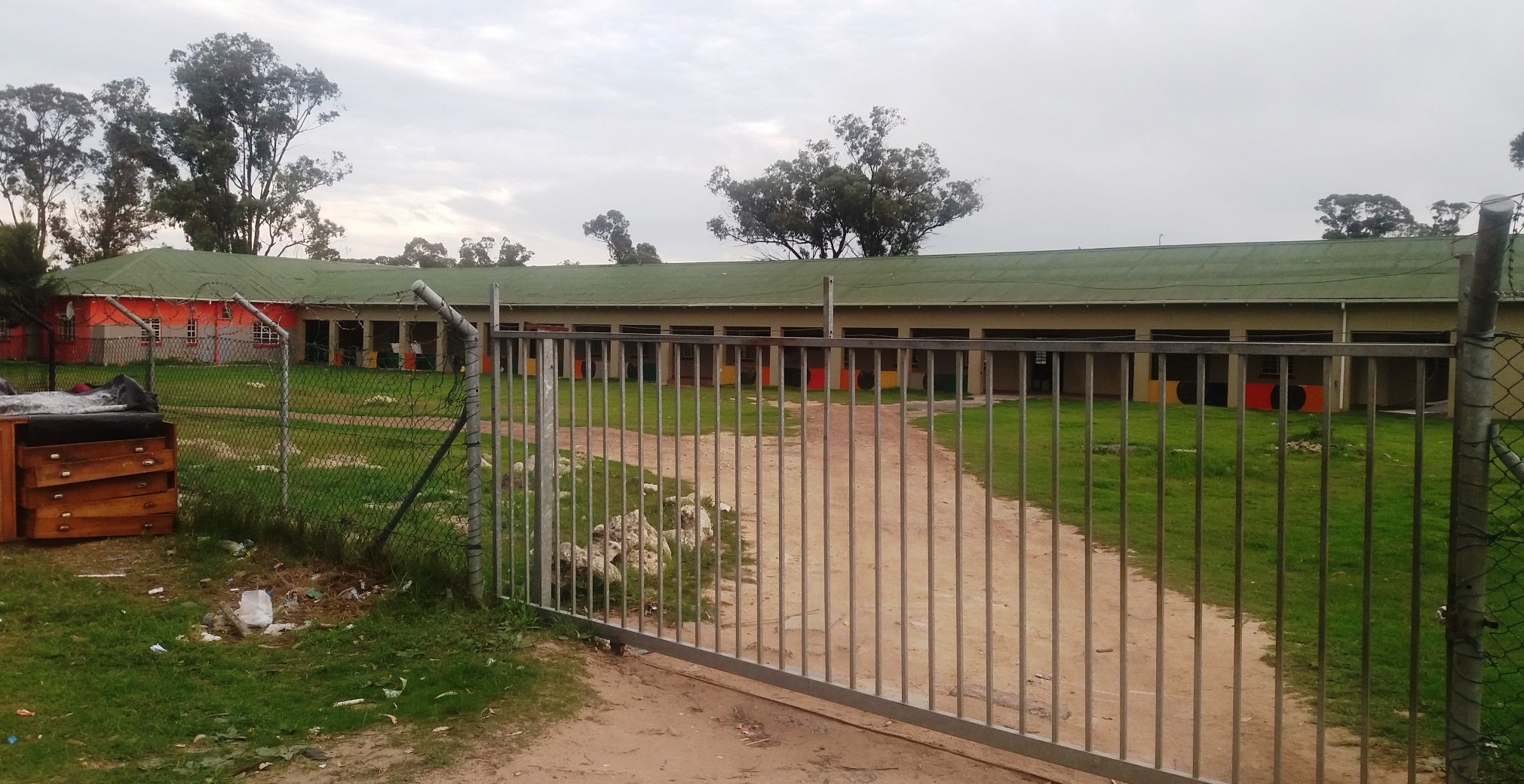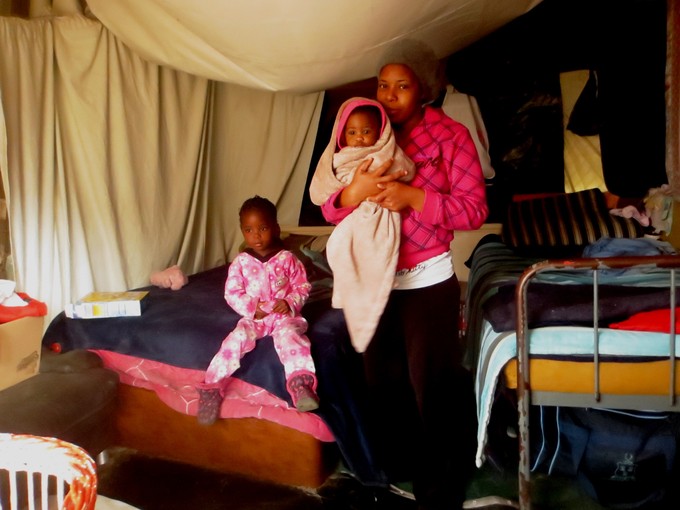Living in tents after government evicts residents and children from safe house
Department of Public Works says it gave sufficient notice and “acted fairly and within the law”
About 50 adults, babies and children, among them victims of domestic violence, have been living for a month in poorly pitched tents without ablution facilities after they were evicted on 5 May from a Department of Transport and Public Works building (1 Stratford Avenue, Eerste River) also known as Geneva House.
They initially spent four nights sleeping out in the open before the tents came. They are now cooking on open fires. They dig holes or relieve themselves in buckets.
Unice Louw (55) said 120 people including 75 children were evicted. She says the tents were donated by a friend of an individual working at Wynberg Children’s court.
Jeneva Claasen, who established a project in the building to help victims of domestic violence and sexual abuse, was among those evicted. She had stayed on the premises for 14 years.
Louw said, “Geneva House rented the building from Public Works for a year, but thereafter the department refused to give them a lease agreement and they stayed there 13 more years.
“In December 2015, they came and gave us an eviction order. They returned again in January this year with the eviction order and on 15 April they said they are coming back within four days and they did not come. On 5 May, a sheriff who had previously dealt with us came with another sheriff and started to throw our furniture over the fence.”
“Our furniture was destroyed and they threw [things] anyhow. We could not find children’s shoes and other important stuff afterwards. As a result, children are going to school with no shoes in this cold and rainy weather.”
“They threw everything here [where the tents are now pitched]. This is how we ended up here, and it doesn’t make any sense, because this land is still their property.”
The office of the State Attorney says officials were on site for days afterwards. Some “disabled and mentally unstable residents” were housed at a shelter and two families were taken to an alternative shelter, but most residents “opted to stay onsite”.

The children
Claasen, now aged 77, said that there had been allegations that the building was being used for criminal activities and this was not true.
Pointing to a young girl, she said, “You see this child is doing grade 12 and has missed examinations because of stress. The environment is not good for children … These tents are very cold. Tonight [Thursday night] it is going to rain and we do not know what we are going to do.”
Byron Lewis, age ten, is doing grade four at Melton Primary School. He goes to school without shoes and often without food. His mother said she was called to the school by the principal because he is depressed and his grades have gone down since the eviction.
Beverley Swartz, a 32-year-old mother of four, said her child is sick. “I have just come out of hospital today … My other child who is in grade three runs away from school most of the days because of this situation. At times, they go to school in the morning before we can manage to make breakfast for them.”
“My husband lost his job … He could not report to work for several days because he was looking after our belongings that were thrown into this open space.”
Swartz, who works at the same company, also lost her position as a cook and supervisor. She is now working in the storeroom.
“This is my sixteenth year on the housing list. I don’t know when I will get my own house. These people should put us back or give us a permanent place to stay,” she said.
In their tent are two beds, one for the parents and the other for the children. The three children squeeze into one bed; they cannot sleep on the ground as it is only covered by a black plastic sheet.
Ayden Claasen said he was disappointed at how the authorities carried out the evictions. He is 41 and unmarried. He lives in one tent with his child who is in grade 2 at Beverly Park School.
“I am a TB patient and sharing the same room and with my child is dangerous,” he said.
Sarah Hess, preparing her night meal outside on a small fire, said, “I am ageing. I don’t know when they will give me a house. It is very difficult for me to share the same room with my 16-year-old child.”
Hess, 52, says they are always in trouble on a rainy day. The tents leak. She has been on a housing list for five years.

Public works responds
Byron Lahoe, communication officer for the provincial public works and transport department, maintains that the residents were given enough time to make alternative accommodation arrangements.
“We sent the sheriff twice and a court order before they were evicted. The department, working with social development, got alternative accommodation for all of them, 50 metres away at The Ark Organisation, which also deals with abused women and children.”
But Louw said that although people were prepared to go to The Ark, is was overflowing. People were sleeping in corridors next to the toilets and the pastor who runs it told them it was full.
The Ark’s receptionist, Cheryl Ouru, confirmed the centre is full.
According to Lahoe, “The building is very old and unsafe for human occupation. In the long run if anything happens, we will be held responsible.” He says the building was declared unsafe.
But Louw said the building was still good and it was renovated in 2009. The showers, taps, roof and floor were fixed with a donation of R1,5 million given directly to Public Works by a donor from Switzerland.
Lahoe said he is not aware of any such donation.
Lahoe said it was true that an alternative place should be provided for this vulnerable group of people, but as Public Works they had done all they could through the Department of Social Development.
Social Development responds
A statement by the provincial Department of Social Development, titled Eviction enables Department to finally reach the vulnerable, confirms much of what Public Works told GroundUp. It also says, “Our assessment revealed that only 4% of the inhabitants were people in need of shelter due to being victims of abuse, and that the majority were people in need of housing.” Yet the same statement says “numerous departmental attempts to reach the residents in order to do necessary assessments and to identify the vulnerable were consistently blocked, and on many occasions social workers were physically attacked and chased off the site.”
And the state attorney confirms that neither Public Works nor Social Development were able to enter the property to survey the residents or serve the eviction notice on them.
Millicent Rebe from Social Development said the people refused alternative accommodation they were offered in areas like Kraaifontein, Khayelitsha and Somerset West, insisting they want to remain in their own group.
Louw said this was news to her.
 Geneva House. Photo: Tariro Washinyira
Geneva House. Photo: Tariro WashinyiraSupport independent journalism
Donate using Payfast

Don't miss out on the latest news
We respect your privacy, and promise we won't spam you.
© 2016 GroundUp. 
This article is licensed under a Creative Commons Attribution-NoDerivatives 4.0 International License.
You may republish this article, so long as you credit the authors and GroundUp, and do not change the text. Please include a link back to the original article.

